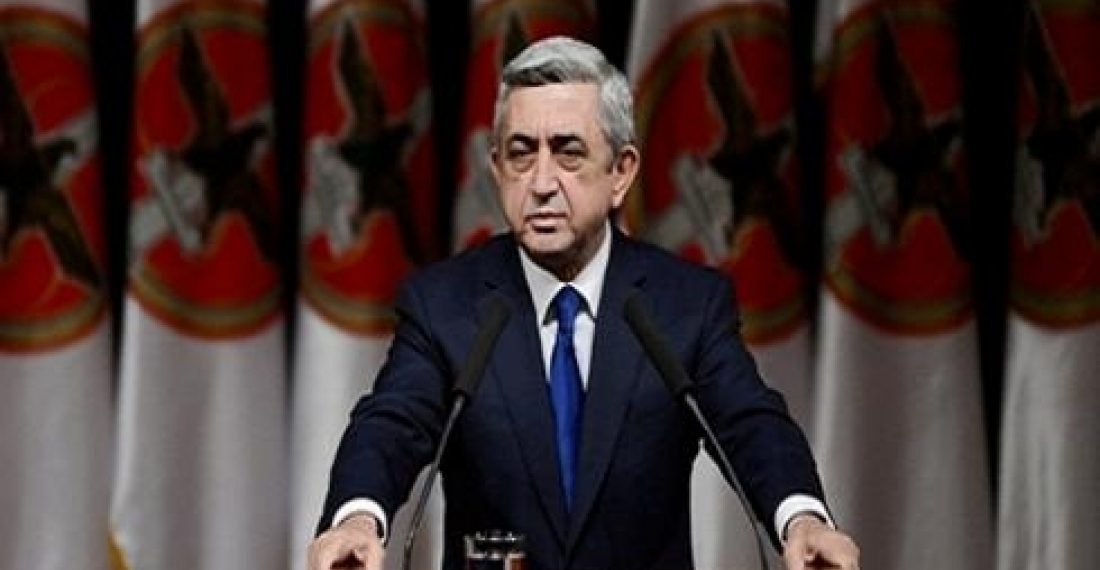The President of Armenia Serzh Sargsyan has reminded the members of the six country CSTO military alliance, which includes both Armenia and Russia, of their obligations to each other.
Armenian and Russian media have quoted the president as telling the summit of the Collective Security Treaty Organisation which opened today in Moscow that one of the fundamental principles of CSTO is the priority of relations within the organization. Sargsyan asked his allies not to forget about the principle, and not to support initiatives which can harm Armenia's interests.
In his speech Serzh Sargsyan spoke about "Baku's non-constructive approach to the settlement of the Karabakh conflict, and of violation of previously reached arrangements during the CSTO Collective Security Council meeting in Moscow".
"Azerbaijan's non-constructive approach to the resolution of Karabakh conflict remains a serious regional threat," he said, adding the arrangement to create mechanisms to hold investigations into the incident along the frontline are torpedoed by Baku. Sargsyan noted that Baku is holding active anti-Armenian propaganda and continues an arms race in the region, RIA Novosti reported.
The President stressed that peaceful negotiations are the only way of finding a solution to the problem. Resumption of hostilities after 18 years of truce and even the threat of resuming war is a direct violation of the principles of international law, he added.
Azerbaijan is not a member of CSTO.
Earlier Russian President Vladimir Putin greeted the leaders of the CSTO countries the presidents of Armenia, Belarus. Kazakhstan, Kyrgystan and Tadjikistan, who together with Russia form the alliance.
The opening ceremony was held in the Green Parlour of the Grand Kremlin Palace in Moscow. During the meeting it was confirmed that Uzbekistan had left the CSTO reducing its number from seven to six.
source: commonspace.eu with RIA Novosrti, Itar-Tass and news.am
photo: President Serzh Sargsyan of Armenia (archive picture).







